Diversity and Cultural Competency Plan
The Mitchell Community College Diversity and Cultural Competency Plan is an intentionally developed strategic plan that sets the course and guides the College in the processes and functions that allow for inclusiveness, equity, and diversity awareness across all areas of the College.
Diversity
Mitchell Community College acknowledges differentiation between groups of people and one another. Mitchell Community College respects and appreciates differences in age, disability, ethnicity, education, gender, national origin, religion, sexual orientation, gender expression, and socio-economic level. The College also recognizes the importance of acknowledging diverse perspectives, work experiences, life styles, lived experiences, and cultures.
Inclusion
Mitchell Community College assures that everyone is valued, heard, and respected. The College strives to create a culture that emphasizes belonging. Mitchell Community College provides the opportunity for faculty, staff, and students to bring their whole selves to our campus community allowing them to become active and engaged campus members.
Equity
Mitchell Community College ensures equality of outcomes by assessing potential barriers and assuring that all individuals are provided with what is needed to be successful. Mitchell Community College strives to ensure that the right conditions are in place for each person to achieve their full potential.
The areas listed below serve as the foundation for the plan:
Environment (Focus Area 1)
Goal 1. Operational Practices: Evaluate, assess and develop business and operational practices that allow for greater diversity, equity and inclusion.
Objectives:
Create inclusive office/classroom spaces and use inclusive language.
Work to uncover personal unconscious biases.
Create an inclusive environment that includes equitable access, dignity, and safety for all individuals and groups.
Review recruiting, interviewing & hiring practices to implement equitable and inclusive processes for new and existing employees.
Evaluate & improve practices, policies & procedures that support the success & retention of diverse faculty and staff.
Student Success (Focus Area 2)
Goal 2. Equitable Student Outcomes: Improve access, retention & completion rates of underrepresented students by establishing equity goals.
Objectives:
Reduce barriers by analyzing practices, policies & procedures that may negatively impact underrepresented students.
Enhance campus equity & inclusion programming to support diverse groups.
Engagement (Focus Area 3)
Goal 3. Training: Enhance the level of commitment to becoming a more culturally competent organization through leadership and faculty and staff training.
Objectives:
Create a culture that promotes the active participation of staff, faculty, administration, and the Board of Trustees in equity and inclusion efforts.
Commit to continuously develop cultural competence through on and off campus professional development opportunities.
Sustainment (Focus Area 4)
Goal 4. Equity and Inclusion Council: Establish the leadership group that will maintain, evaluate and monitor the ongoing development and implementation of the Diversity and Cultural Competency Plan.
Objectives:
Collect data for the assessment of underrepresented students.
Routinely assess college climate and culture.
Rely on data to set big picture equity goals.
Define strategies that extend the diversity, equity, and inclusion work of the College.
Provide leadership in the areas of curriculum, events, and resources as they relate to diversity, equity, and inclusion.
External Collaboration (Focus Area 5)
Goal 5. Work Externally to Change the Student Experience: Establish community partners to create a seamless student experience.
Objectives:
Develop relationships with external partners to promote on-going student access and success.
Devise strategies that speak to the needs and goals of both partners.
Establish common metrics of progress and success.
Create structures for frequent and meaningful communication between partners.
Each of these align with the Long Range Plan related to Programming, the primary goal of which is to optimize programming that enhances the operational, administrative, or academic learning process at the College.


